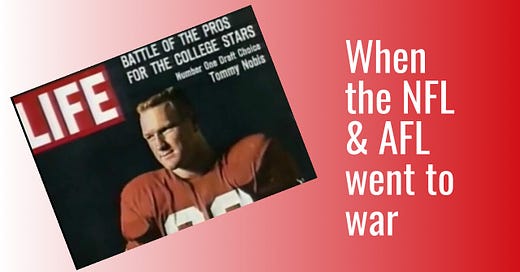Good morning, all. I hope your week is off to a great start.
Talk about a prediction made by a sportscaster that came true, how about this one? As I was delving through the NY Daily News archives the …
Keep reading with a 7-day free trial
Subscribe to Dan On Sports to keep reading this post and get 7 days of free access to the full post archives.



